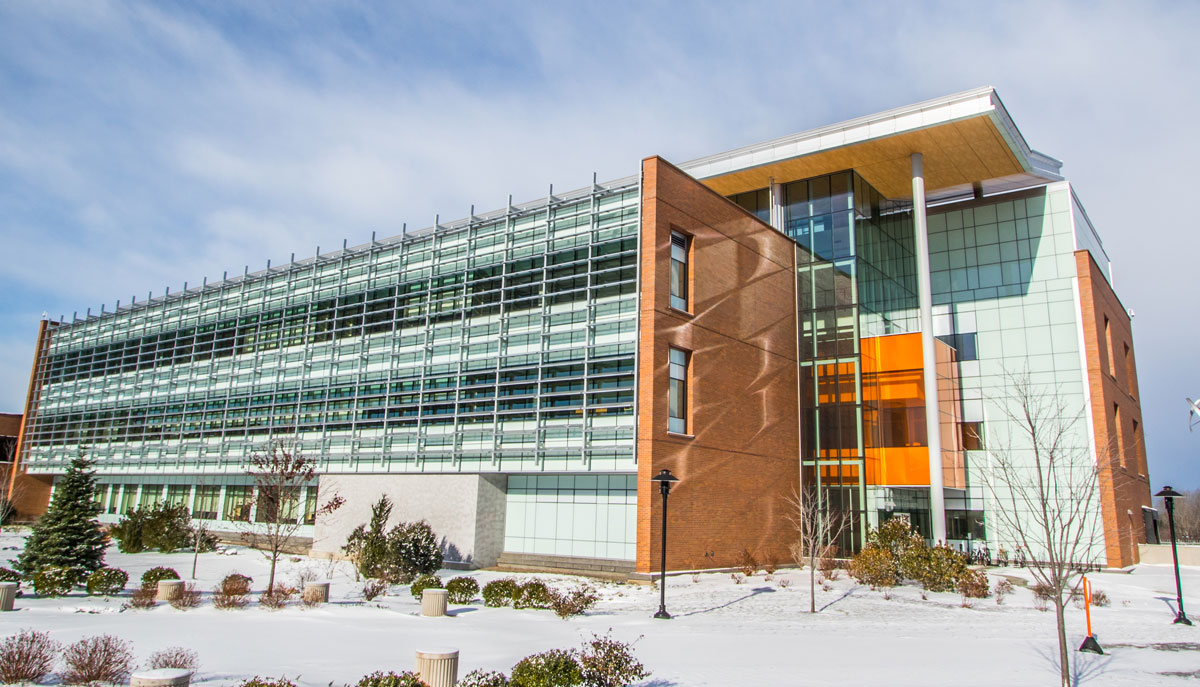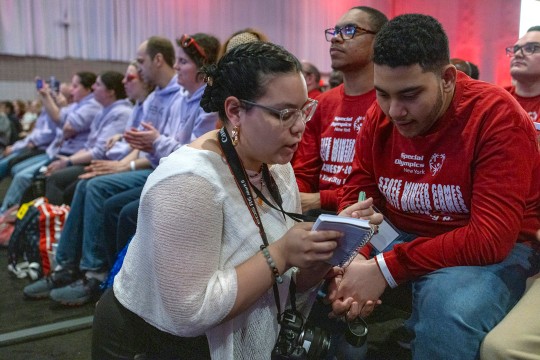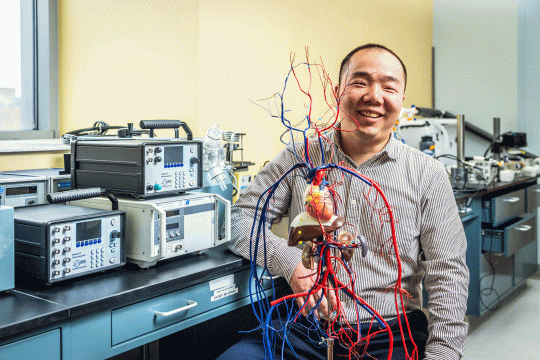GIS awarded $3.5 million from the REMADE Institute to advance circular economy technologies
The REMADE Institute (REMADE) selected four projects for award that were proposed by researchers at the Golisano Institute for Sustainability (GIS) at Rochester Institute of Technology (RIT), a funding award totaling $3.5 million. REMADE is one of 16 federally funded public-private research consortia dedicated to advancing promising manufacturing technologies deemed critical to U.S. competitiveness and workforce development.
"The transition to a net-zero greenhouse gas economy will require an unprecedented reduction in the embodied energy and carbon emissions associated with foundational industrial materials," said Kelly Speakes-Backman, principal deputy assistant secretary for energy efficiency and renewable energy for the U.S. Department of Energy. "By investing in technologies that improve our ability to re-use, recycle and remanufacture these materials, DOE is moving America toward a circular economy and reducing carbon emissions across the manufacturing sector."
The four new awards, described in detail below, bring the all-time number of projects awarded to GIS by REMADE to 12, a total of $5.3 million in award funding. Every REMADE award is matched one-to-one with cost-share from the project participants, RIT and/or a grant to RIT from the New York State Department of Economic Development. Taking into account cost-sharing, the total value of all REMADE projects awarded to GIS to date comes to $10.7 million.
“These projects are great examples of how GIS is helping to close the gap between circular economy theory and practice,” said Kathleen Kosciolek, assistant director for program administration at GIS.
Project work is scheduled to begin in 2022.
Project details
Title: Automation for Remanufacturing of Battery Modules
Total value (including cost-share): $2,989,404
GIS researchers will partner with surplus battery supplier BigBattery Inc. to address two challenges to remanufacturing lithium-ion batteries: module testing and pack disassembly. The project will develop an automation process enabled by a computer-vision system and robotic arms for facilitating routine disassembly. Algorithms will be developed to detect failures in used modules, as well as their states of charge and health, using existing testing equipment. Nenad Nenadic, a research associate professor, will lead the GIS research team, which will include Callie Babbitt, a professor of sustainability, and Abu Islam, a senior prognostics health management engineer. Jay Wheaton, also a senior prognostics health management engineer, will provide technical expertise.
Title: Development of a Novel Design for Remanufacturing (DfR) Software Plugin for CAD
Total value (including cost-share): $1,956,272
GIS will work with Caterpillar Inc., Autodesk Inc., BorgWarner Inc., Trane Technologies Inc., ZF Group, and the Remanufacturing Industries Council to develop a software tool that integrates with existing computer-aided design (CAD) programs as a plugin. It will help product designers, managers, and engineers understand how design choices impact a product’s remanufacturing potential and the relationship between design, cost, and environmental impact. The project will be led by Brian Hilton, a senior research engineer at GIS. He will be supported by staff researchers Scott Nichols and Mark Walluk.
Title: High-Speed Laser Cladding Repair Process Development
Total value (including cost-share): $1,070,280
GIS will collaborate with Caterpillar Inc. and Synergy Additive Manufacturing LLC to expand on an exploratory project that established a process to utilize high-speed laser cladding (HSLC) as a repair method for surfaces of hard components in heavy duty equipment remanufacturing. The knowledge generated will be broadly applicable across a range of component repair applications in multiple remanufacturing sectors (i.e., heavy duty, automotive, aerospace, and locomotive). Walluk and Brandon Baker, a staff researcher, will co-lead the project.
Title: Development of an Automated Method for Disassembly and Separation of Apparel for Recycling
Total value (including cost-share): $1,008,286
Seventy three percent of fiber produced for apparel is landfilled or incinerated, 12 percent is recycled into lower value applications, and only 1 percent is recycled for use in clothing. With support from Nike Inc., GIS will develop an automated process for apparel dismantling that can provide a cost-effective, high-purity secondary material stream for long fibers that offers more economic recycling options. Walluk is the project’s principal investigator and Islam is the co-investigator. Staff researchers James Larrabee, Sean McConky, and Nenadic are also key project team members.













